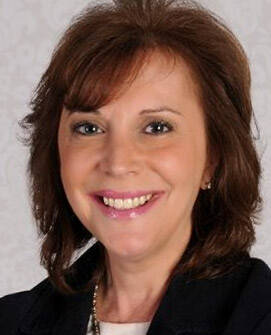Peoria is a gritty industrial city on the banks of the Illinois River. Like many an old manufacturing base, it has experienced economic downturns, periodic crime waves and growing poverty. Yet its citizens endure. Their common-sense Midwestern values still prompt the famous expression, “Will it play in Peoria?”
On the city’s struggling south side, St. Ann Catholic Church has long served as an anchor. Now St. Ann is finding itself unmoored. In August, the Diocese of Peoria removed its popular pastor, the Rev. Terry Cassidy, citing “credible evidence” of a 30-year-old incident of sexual misconduct with a minor.
Parishioners describe Cassidy, 63, as a committed, caring priest, unafraid to share his own foibles and struggles. One of his favorite messages is emblazoned on a banner overhanging the altar: “God Is Too Busy Loving Us to Be Disappointed in Us.”
A few days after the news broke, the parish held a prayer vigil at the towering Romanesque-style church. One member said it was a way not only of supporting Cassidy but also of “holding the parish together.” As the service began, a staff member rose and told the packed church she had heard from Father Cassidy. “He wants you to know he is innocent and that he will not resign as pastor,” she said. Parishioners rose from the pews and cheered.
The crucible St. Ann parishioners are facing underscores the complexities and tensions that arise when a pastor is accused. It has been more than a decade since the church adopted standards for handling abuse allegations. But there is no standard procedure, no moral road map, for those left behind at the parish to grapple with the aftermath of such a disclosure. They face navigating a precipice between supporting a well-loved priest while also acknowledging the trauma victims suffer. The lack of details released by the diocese—was it one allegation or several, one accuser or many?—added to the frustration many St. Ann’s parishioners felt.
The parishioners’ public display of support immediately drew protests from the Survivors Network of Those Abused by Priests. “Every time parishioners rally around a credibly accused child molesting cleric, it’s sad, tiresome and hurtful to vulnerable kids and ultimately to the parish itself,” a SNAP statement said. “Because the priest is good at this or that—homilies, service work, one-on-one counseling or boosting church membership—parishioners somehow can’t imagine that he can simultaneously be sick at some deep emotional level.”
David Clohessy, a SNAP spokesman, says victims, witnesses and whistle-blowers are less likely to come forward if they think parishioners will be hostile. SNAP’s website contains a suggested set of guidelines for “What to Do When Your Priest Is Accused of Abuse.” It advises: “Support the accused priest privately. Calls, visits, gifts and prayers, all of these are appropriate ways to express your love and concern…. You may want to publicly defend a priest, collect funds for the priest’s defense…. Please don’t.”
Tom Wiegand, a businessman who has attended St. Ann for 20 years, says parishioners there understand this. The prayers of petition at the vigil, which he read, included prayers not only for Cassidy but for “all victims of abuse…caregivers, families and professionals who provide support and treatment to victims of abuse…and those who are angry, bitter or sad.” But with emotions raw and the future of the parish uncertain, the congregation’s attempts to strike a balance remain a struggle.
“I’ve been angry at God, angry at others, angry that my [parish] family is hurting and that I’m hurting,” one parish council member, Ellen Tallon, said.
The Rev. Tom Kelly, a retired priest who attended the St. Ann’s vigil, called Cassidy a gifted priest who he believes is innocent. But Kelly adds, “If it’s a matter of fact that Terry is guilty, then despite the enormous good he’s done, he must be put on the sidelines…. It’s just horrendous the spiritual and emotional damage that is done” to abuse victims.
The Rev. Steven Tibbetts, pastor of Zion Evangelical Lutheran Church, worked with Cassidy on Cursillo retreats and says he too hopes Cassidy will be cleared. His comments at the St. Ann vigil seemed to sum up the road ahead for the parish: “How can churches become places where sins are acknowledged and ultimately forgiven?” For now, the people of St. Ann’s are praying for an answer.








